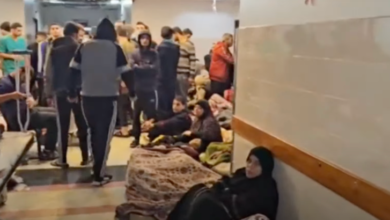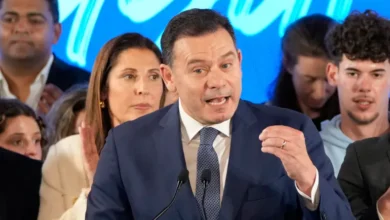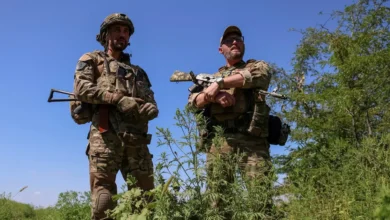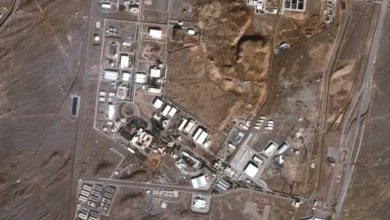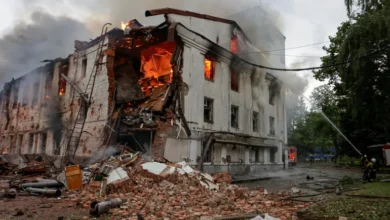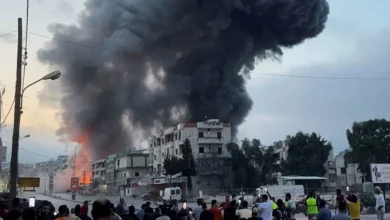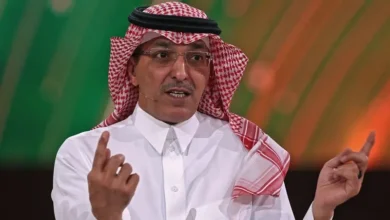Pope meets refugees, urges Hungary to show charity to all
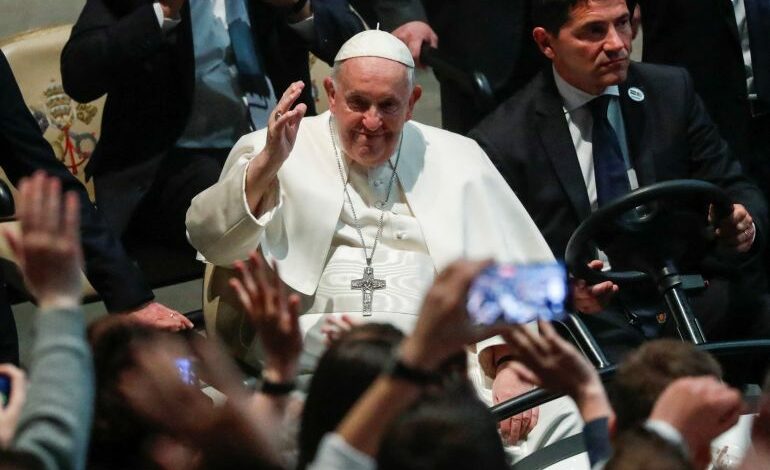
Pope Francis thanked Hungarians on Saturday for welcoming Ukrainian refugees and urged them to help anyone in need, as he called for a culture of charity in a country where the prime minister has justified firm anti-immigration policies with fears that migration threatens Christian culture in Europe.
On the second day of a visit to Hungary, Francis met refugees and poor people at St. Elizabeth’s church – named for a Hungarian princess who renounced her wealth to dedicate herself to the poor as a follower of the pope’s namesake, St Francis of Assisi.The refugees included some who had fled to Hungary from neighbouring Ukraine, seeking safety from Russia’s war.
Immediately after, Francis met the Russian Orthodox Church’s representative in Hungary, Metropolitan Hilarion. The Vatican said the 20-minute meeting at the Holy See’s embassy in Budapest was “cordial”.
The Russian church’s support for the Kremlin’s war has prevented a papal meeting with Patriarch Kirill, the head of the Russian Orthodox Church and an ally of Russian President Vladimir Putin. Francis and Kirill had a 2016 encounter in Cuba that marked the first between a pope and an Eastern Orthodox leader in centuries.
Speaking in the white-brick St Elizabeth’s church in Budapest, Francis recalled that the Gospel instructs Christians to show love and compassion to all, especially those experiencing poverty and pain and “even those who are not believers”.
“The love that Jesus gives us and commands us to practice can help to uproot the evils of indifference and selfishness from society, from our cities and the places where we live – indifference is a plague – and to rekindle hope for a new, more just and fraternal world, where all can feel at home,” he said.
Hungary’s nationalist government has implemented firm anti-immigration policies and refused to accept many asylum seekers trying to enter the country through its southern border, leading to prolonged legal disputes with the European Union.The conservative populist prime minister, Viktor Orban, has said that migration threatens to replace Christian culture in Europe. Orban, who has held office since 2010, has hinged multiple election campaigns on the threats he has alleged migrants and refugees pose to Hungarians.
While Orban’s government has consistently rejected asylum seekers from the Middle East and Africa, some 2.5 million Ukrainians fleeing war in their country found open doors. Approximately 35,000 of the refugees remain in Hungary and have registered for temporary protection there, according to the UN.Yet monetary assistance for the Ukrainian refugees has been meagre. Fewer Ukrainians have opted to stay in Hungary than any other country in Eastern Europe except Belarus.
Olesia Misiats chose to stay; she was a nurse who worked in a Kyiv COVID-19 hospital when she fled with her mother and two daughters on February 24 of last year. First, she went to the Netherlands, but high costs compelled her to move to Hungary, where she said she has found an apartment and given birth to her third daughter, Mila, who was in the pews Saturday with her mother and sister.
“Here, it’s safe,” Misiats said of her new life. She said she hoped one day to return to Kyiv, but for now, she and her children are adapting. “I want to go back home. There it’s my life, it was my life,” she said. “But the war changed my life.”
There were conspicuously few people of colour in the pews. Among them was artist and filmmaker Abouzar Soltani, a refugee from Iran who spent 553 days in one of Hungary’s transit zones with his 10-year-old son, Armin, after Hungarian authorities rejected their asylum claims in 2018.
Soltani later said of their 18 months staying in container shelters that they felt like “fish in an aquarium”. When a European court decision closed the transit zones, Soltani opted to remain in Hungary, where he still lives.


